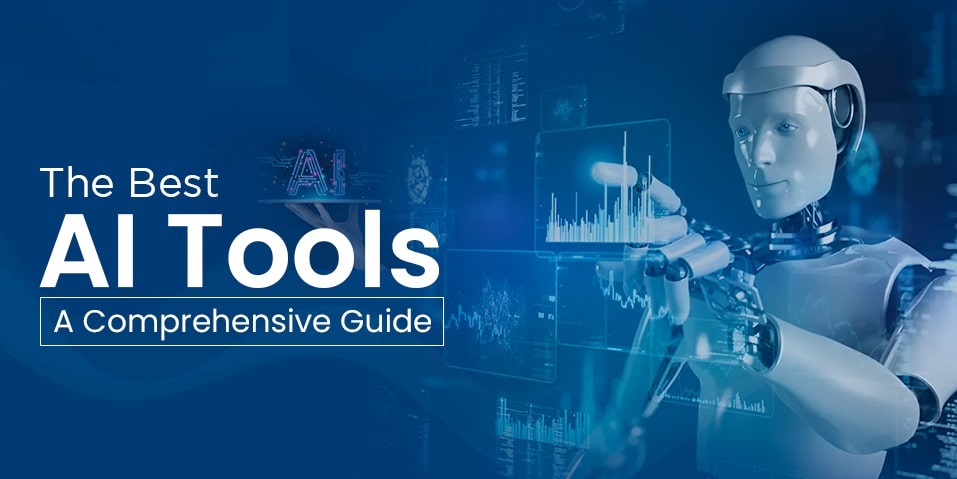Stories you may like
AI Product Manager
An AI product manager oversees the development, implementation, and optimization of artificial intelligence (AI) products and solutions within a company or organization. This role involves collaborating with cross-functional teams, including software engineers, data scientists, designers, and business stakeholders, to define product requirements, prioritize features, and drive the product roadmap.
AI product managers translate business objectives and customer needs into actionable product strategies, ensuring that AI solutions align with organizational goals and deliver value to end-users.
Duties and Responsibilities
The duties and responsibilities of an AI product manager encompass a broad range of tasks aimed at driving the development, deployment, and optimization of AI-driven products and solutions. Here are some key responsibilities associated with this role:
- Product Strategy and Roadmap: Collaborate with stakeholders to define the vision, strategy, and roadmap for AI products and solutions. Identify market opportunities, customer needs, and business objectives to prioritize features and functionalities that deliver maximum value and competitive advantage.
- Requirement Definition and Prioritization: Work closely with cross-functional teams, including data scientists, engineers, designers, and business analysts, to gather requirements, define product specifications, and prioritize feature development based on business impact, technical feasibility, and user needs.
- Project Management and Execution: Lead the execution of product development initiatives, coordinating activities across multiple teams, managing timelines, budgets, and resources, and ensuring timely delivery of high-quality AI solutions that meet customer expectations and business goals.
- Data Analysis and Insights: Utilize data analytics, market research, and user feedback to gain insights into user behavior, product performance, and market trends. Leverage data-driven decision-making to inform product strategy, prioritize enhancements, and optimize user experiences.
- Stakeholder Communication and Alignment: Act as a liaison between internal teams, external partners, and executive stakeholders to communicate product vision, status updates, and roadmap priorities. Foster alignment and collaboration across departments to ensure cross-functional buy-in and support for AI initiatives.
- Risk Management and Compliance: Identify potential risks, challenges, and regulatory considerations associated with AI product development and deployment. Develop mitigation strategies, ensure compliance with legal and ethical standards, and address security, privacy, and fairness concerns throughout the product lifecycle.
- User Experience and Design: Champion user-centric design principles and best practices to create intuitive, engaging, and accessible AI-powered products that meet the needs of diverse user groups. Collaborate with designers to develop user interfaces, interaction flows, and visualizations that enhance usability and drive user adoption.
- Product Marketing and Go-to-Market Strategy: Collaborate with marketing, sales, and business development teams to develop go-to-market strategies, positioning, and messaging for AI products. Support product launches, promotional campaigns, and sales enablement efforts to drive awareness, adoption, and revenue growth.
- Continuous Improvement and Innovation: Drive a culture of innovation and continuous improvement within the organization, fostering experimentation, learning, and adaptation to evolving market dynamics and technological advancements in AI. Iterate on product features, experiment with new functionalities, and incorporate user feedback to drive product evolution and differentiation.
Types of AI Product Managers
AI product managers can specialize in various domains and industries, each requiring a unique skill set and expertise to effectively manage AI-driven products and solutions. Here are some common types of AI product managers based on their specialization:
- Automotive AI Product Manager: Works in the automotive industry to develop AI-driven features and applications for connected cars, autonomous vehicles, driver assistance systems, predictive maintenance, and intelligent transportation systems, enhancing safety, efficiency, and user experience.
- Consumer AI Product Manager: Specializes in creating AI-powered consumer-facing products and services, such as virtual assistants, recommendation systems, personalized content delivery platforms, and smart home devices, that enhance user experiences and drive customer engagement.
- Cybersecurity AI Product Manager: Works in the cybersecurity industry to develop AI-driven threat detection, intrusion detection, anomaly detection, malware analysis, and security orchestration solutions that protect organizations from cyber threats and data breaches, while ensuring data privacy and compliance with regulatory requirements.
- E-commerce AI Product Manager: Specializes in developing AI-powered e-commerce solutions, such as recommendation engines, personalized shopping experiences, inventory management systems, pricing optimization algorithms, and fraud detection tools, to drive sales and customer loyalty in online retail environments.
- Education AI Product Manager: Focuses on developing AI-powered educational tools, learning platforms, adaptive learning systems, and assessment tools that personalize learning experiences, improve student outcomes, and optimize teaching resources in K-12 schools, higher education institutions, and corporate training programs.
- Enterprise AI Product Manager: Focuses on developing AI solutions tailored to enterprise customers, addressing business challenges such as process automation, predictive analytics, customer relationship management, and supply chain optimization.
- Finance AI Product Manager: Focuses on leveraging AI technologies to enhance financial services, including fraud detection, risk assessment, algorithmic trading, credit scoring, personal finance management, and customer service automation, while ensuring data security and regulatory compliance.
- Healthcare AI Product Manager: Works in the healthcare industry to develop AI-driven solutions that improve patient care, clinical decision-making, medical imaging analysis, drug discovery, and population health management, while ensuring compliance with regulatory requirements and privacy standards.
- Smart Cities AI Product Manager: Focuses on leveraging AI technologies to develop smart city solutions, such as traffic management systems, energy optimization, waste management, public safety, and urban planning applications, to enhance quality of life, sustainability, and resilience in urban environments.
- Supply Chain AI Product Manager: Specializes in optimizing supply chain operations through AI-driven solutions, such as demand forecasting, inventory management, logistics optimization, supplier risk management, and predictive maintenance, to enhance efficiency, resilience, and sustainability in global supply chains.
AI Product Manager skills
These are 6 key skills that you need as an AI Product Manager -
1. Technical Proficiency: A Crucial Starting Point
One of the first competencies an AI product manager should possess is technical proficiency. This begins with a solid understanding of AI and ML fundamentals. While diving deep into the intricate details isn't a must, AI product managers should be well-versed in the basics of machine learning, deep learning, and data science, along with their practical applications. This foundational knowledge ensures you can effectively collaborate with data scientists and engineers, ensuring that the product vision aligns with technical realities.
Beyond this, AI product managers should also have a good grasp of programming concepts, data structures, and algorithms. It is equally important for you to be familiar with the technology stack that powers AI models. While you don't need to build these systems, understanding how they operate and why certain technical choices are made can significantly influence the direction and success of an AI-driven product.
2. Data Acumen: Navigating the Lifeblood of AI
Following technical proficiency, another paramount skill for AI product managers is data acumen. This starts with developing a keen intuition for data. AI product managers should be adept at asking pertinent questions, discerning between high-quality and unreliable data, and pinpointing the exact data requirements for specific AI solutions.
Moreover, in today's digital landscape, it's not just about harnessing data; it's about doing it responsibly. AI product managers need to be cognizant of data privacy norms and the ethical landscape. Being well-informed about regulations and showing a commitment to ethical data collection, storage, and processing not only ensures compliance but also builds trust with users and stakeholders.
3. Grasping AI's Limits: Navigating Challenges and Pitfalls
Building on technical and data acumen, AI product managers must also possess a clear-eyed understanding of the inherent limitations and challenges of AI. Firstly, issues of bias and fairness cannot be overlooked. AI product managers need to be vigilant, spotting potential biases in AI models and striving to achieve fairness in the decisions driven by AI.
Next, the black-box nature of many AI models can be a concern, especially when significant outcomes hinge on their decisions. AI product managers should champion model explainability, ensuring that the workings of an AI system can be made transparent and understandable, fostering trust and accountability.
Additionally, while AI offers transformative potential, bringing these innovations to life isn't without its hurdles. AI product managers must be attuned to the operational challenges of deploying and sustaining AI models in real-world contexts, ensuring smooth integrations and consistent performance.
4. Soft Skills and Teamwork: The Human Side of AI Product Management
Beyond understanding the intricacies of technology and data, AI product managers must excel in the realm of soft skills and collaboration. Communication sits at the forefront: the ability to demystify AI, clearly conveying its benefits and limitations, and making intricate technical details accessible to a wider audience is vital. This ensures alignment and shared vision across teams and stakeholders.
In the fast-paced world of AI, adaptability is not just a virtue but a necessity. AI product managers should remain agile, ready to pivot in response to emerging technologies, fresh insights, or changing business landscapes.
Leading a team is not merely about direction, but inspiration. A successful AI product manager galvanizes their team, fostering a harmonious and productive environment. And as AI's reach expands, so do its ethical implications. An AI product manager must be vigilant, ensuring that products not only serve their purpose but do so in a manner that's conscientious and responsible.
5. Marrying AI with Product Management Essentials
While AI brings its own set of challenges and requirements, the foundational pillars of traditional product management remain equally crucial. Central to this is an understanding of the product lifecycle, charting a product's journey from mere concept to its full-fledged deployment and beyond.
Moreover, the multifaceted world of product development demands adept stakeholder management. AI product managers must synchronize the efforts of engineers, designers, marketers, and even customers, ensuring everyone marches to the same beat.
Putting the user at the forefront is a timeless principle. This involves not only emphasizing user-centric design thinking but also assessing how AI innovations might reshape user experiences. Strategic vision, coupled with sound business acumen, is indispensable. An AI product manager should be attuned to the broader business environment, cognizant of market dynamics, competitors, and viable monetization avenues.
Lastly, in plotting the course ahead, effective roadmap planning stands out. Balancing immediate needs with long-term aspirations requires a keen sense of prioritization, ensuring resources are judiciously allocated to create a product that truly resonates.
6. Continuous Learning: The Journey of Never-Ending Growth
In the swiftly evolving landscape of AI, resting on one's laurels is not an option. For AI product managers, commitment to growth translates to a dedication to continuous learning. This doesn't merely mean keeping abreast of the latest breakthroughs; it's about proactively seeking knowledge. Engaging in courses, diving into enlightening readings, participating in workshops, and marking presence at pivotal conferences become more than just activities—they're vital lifelines that keep AI product managers at the cutting edge, ensuring they navigate the AI wave with prowess and foresight.
Workplace of an AI Product Manager
The workplace of an AI product manager involves a dynamic blend of office-based collaboration, remote work flexibility, and client-facing interactions. As a central figure in the development and management of AI-driven products and solutions, AI product managers often find themselves immersed in a fast-paced and collaborative environment where innovation and problem-solving are paramount.
Office settings serve as hubs for cross-functional collaboration, where AI product managers work closely with teams of data scientists, software engineers, designers, and business stakeholders to define product requirements, prioritize features, and drive product development initiatives forward. In these collaborative environments, AI product managers leverage specialized tools and technologies to analyze data, monitor project progress, and facilitate communication among team members, fostering an environment conducive to creativity, innovation, and knowledge sharing.
Additionally, AI product managers often engage in client-facing activities, such as meetings, presentations, and workshops, which may take place both on-site at client locations and remotely via virtual meetings or conference calls. Whether collaborating with internal teams or engaging with external clients, effective communication, and stakeholder management skills are essential for AI product managers to navigate complex relationships, align stakeholders' expectations, and drive consensus around product decisions and strategic initiatives. Furthermore, with the increasing adoption of remote work arrangements and distributed teams, AI product managers have the flexibility to work from home or other remote locations, leveraging technology to stay connected and productive while balancing work-life commitments.
How to become an AI Product Manager
Becoming an AI product manager requires a combination of education, experience, technical skills, and soft skills. Here's a guide on how to pursue a career as an AI product manager:
- Educational Background: Obtain a bachelor's degree in a relevant field such as computer science, engineering, data science, business administration, or a related discipline. Consider pursuing advanced education, such as a master's degree or MBA, to deepen your understanding of business principles and gain specialized knowledge in artificial intelligence (AI) and product management.
- Gain Industry Experience: Acquire relevant industry experience in roles such as software engineer, data scientist, product analyst, or project manager to develop a solid foundation in technology, data analysis, and project management. Seek opportunities to work on AI-related projects or products, gaining exposure to AI technologies, methodologies, and best practices.
- Develop Technical Skills: Acquire proficiency in AI and machine learning concepts, tools, and techniques, including data analysis, statistical modeling, machine learning algorithms, natural language processing, and deep learning frameworks. Familiarize yourself with AI development platforms, programming languages (e.g., Python, R), and software tools commonly used in AI product development.
- Hone Product Management Skills: Develop strong product management skills, including market research, product strategy, requirement gathering, prioritization, roadmap planning, and stakeholder management. Gain experience in product development methodologies such as Agile, Scrum, or Lean Startup, and familiarize yourself with product management tools and frameworks.
- Build a Portfolio: Showcase your skills and expertise by building a portfolio of AI-related projects, products, or case studies that demonstrate your ability to drive product development, solve complex problems, and deliver value to users and stakeholders. Highlight your contributions, achievements, and the impact of your work on business outcomes.
- Gain Leadership Experience: Seek opportunities to lead cross-functional teams, mentor junior colleagues, or take on leadership roles in AI-related projects or initiatives. Develop strong leadership, communication, and interpersonal skills to effectively collaborate with diverse teams and drive consensus around product decisions and strategic initiatives.
- Stay Updated and Adapt: Keep abreast of advancements in AI technologies, industry trends, regulatory developments, and emerging best practices in product management. Continuously seek opportunities to learn, adapt, and expand your skill set to remain competitive and relevant in the fast-paced field of AI product management.
Certifications
There are several certifications and courses that can enhance your credentials and demonstrate your expertise in product management, artificial intelligence (AI), and related domains. Here are some relevant certifications and courses for AI product managers:
- Certified Scrum Product Owner (CSPO): Offered by Scrum Alliance, this certification validates your knowledge of Scrum principles and practices related to product ownership and Agile product management. It covers topics such as backlog management, release planning, stakeholder engagement, and prioritization, which are essential for managing AI product development projects in Agile environments.
- Certified Product Manager (CPM): Offered by the Association of International Product Marketing and Management (AIPMM), this certification demonstrates your proficiency in product management principles, methodologies, and best practices. It covers topics such as product strategy, market analysis, product lifecycle management, and go-to-market strategies, providing a comprehensive foundation for managing AI products and solutions.
- AI Product Management Specialization (Coursera): Offered by leading universities and technology companies, such as Stanford University and Google Cloud, this specialization provides a deep dive into AI product management concepts, strategies, and techniques. It covers topics such as AI product development, AI ethics, user-centered design, and AI project management, offering practical insights and real-world case studies to enhance your AI product management skills.
- Machine Learning for Product Managers (Udacity): This course is designed for product managers who want to gain a deeper understanding of machine learning concepts and applications in product development. It covers topics such as machine learning fundamentals, data analysis, model evaluation, and product integration, equipping you with the knowledge and skills to effectively collaborate with data scientists and engineers on AI product initiatives.
- AI Product Management Bootcamp (Product School): This intensive bootcamp provides hands-on training and practical insights into AI product management, covering topics such as AI strategy, product ideation, MVP development, and product launch. It includes workshops, case studies, and group projects to simulate real-world AI product management scenarios and challenges, helping you build practical experience and expertise in the field.
- AI Ethics and Governance (edX): This course explores ethical considerations and regulatory challenges associated with AI product development and deployment. It covers topics such as fairness, transparency, accountability, and privacy in AI systems, providing guidance on how to navigate ethical dilemmas and ensure responsible AI product management practices.










User's Comments
No comments there.